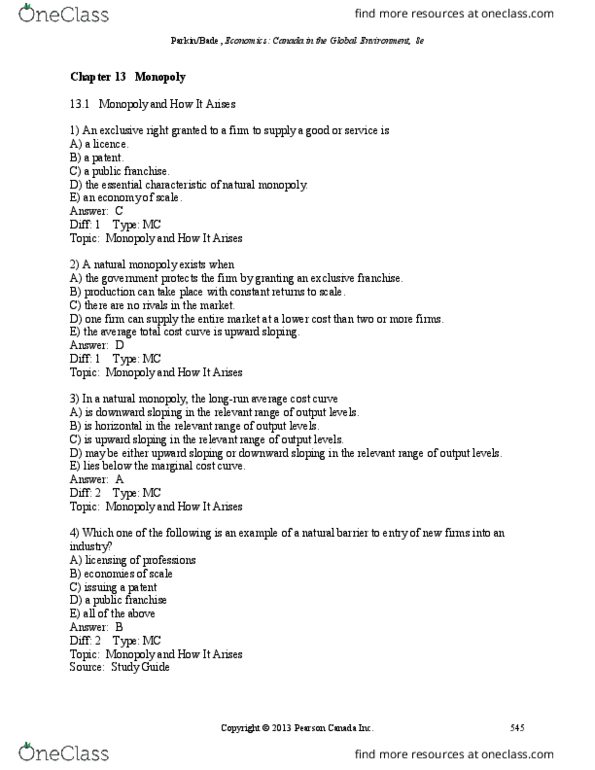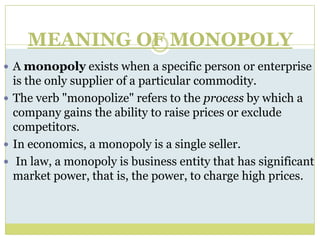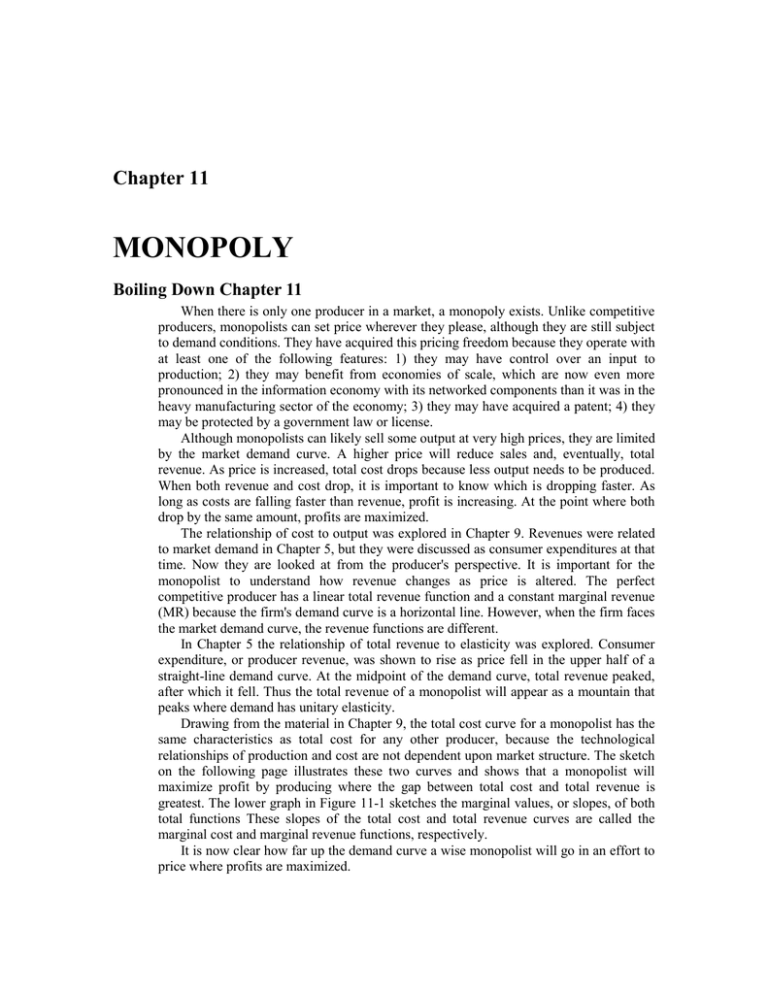A monopoly exists when a single firm controls the entire market for a particular product or service. This means that the firm is the only supplier of that product or service, and all customers have to purchase it from them. A monopoly can occur naturally or it can be created by the government through legislation or regulation.
There are several characteristics that define a monopoly. Firstly, a monopoly has a high barrier to entry, which means it is difficult for new firms to enter the market and compete with the monopoly. This can be due to various factors such as economies of scale, patents, or exclusive contracts with suppliers or customers. Secondly, a monopoly has a significant market power, which allows it to control the price and quantity of the product or service it sells. This is because the monopoly is the only supplier and has no competition, so it can set the price as high as it wants without fear of losing customers to a rival firm.
There are both advantages and disadvantages to having a monopoly in a market. On the one hand, a monopoly can be efficient in terms of production and distribution, as it can take advantage of economies of scale and use its resources more effectively. This can lead to lower costs and higher profits for the monopoly. On the other hand, a monopoly can abuse its power by charging higher prices and providing lower quality products or services, leading to consumer dissatisfaction and reduced welfare.
Monopolies can also have negative effects on innovation and competition. Without competition, there is less incentive for the monopoly to improve its products or services, as it has no rivals to compete with. This can lead to stagnation in the market and reduce the overall efficiency of the economy.
In order to prevent the negative effects of monopolies and promote competition, governments often implement antitrust laws and regulations. These laws aim to prevent firms from engaging in monopolistic practices and encourage fair competition in the market. This can include actions such as breaking up large monopolies into smaller firms, regulating prices, and preventing exclusive contracts.
In conclusion, a monopoly exists when a single firm controls the entire market for a particular product or service, and has high barriers to entry and significant market power. While monopolies can be efficient in some ways, they can also have negative effects on consumers and the overall economy. To promote competition and prevent monopolistic practices, governments often implement antitrust laws and regulations.








